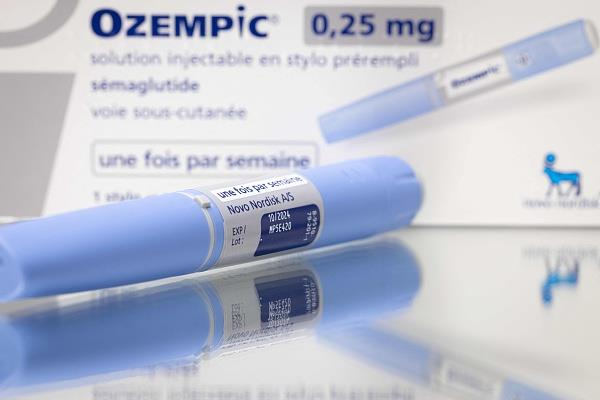Is it safe to take Semaglutide during pregnancy?
If you are pregnant or about to become pregnant, you need to know the following information about using GLP-1 drugs to treat type 2 diabetes or obesity.
Glucagon like peptide 1 (GLP-1) receptor agonists, such as Ozempic (semaglutide) and Trulicity (dulaglutide), are increasingly used to treat type 2 diabetes and, in some cases, to lose weight. If you have type 2 diabetes, your doctor may even mention trying one of the newer drugs. However, if you are pregnant or attempting to conceive, are these medications safe to use? The research results are inconsistent, therefore experts suggest that women temporarily stop or delay starting GLP-1 medication in this situation. “More research is needed to determine whether taking semaglutide or other GLP-1 during pregnancy is safe,” said Dr. Monte Swarup, a gynecologist at the Arizona Women’s Health Center in Phoenix. “Therefore, we require patients to stop taking these medications before attempting pregnancy and not to use them during pregnancy.”
“More research is needed to determine whether taking semaglutide or other GLP-1 during pregnancy is safe,” said Dr. Monte Swarup, a gynecologist at the Arizona Women’s Health Center in Phoenix. “Therefore, we require patients to stop taking these medications before attempting pregnancy and not to use them during pregnancy.”
Let’s take a closer look at the known and unknown information about the use of GLP-1 during pregnancy, as well as the reasons why experts recommend cautious use.
GLP-1 drug and pregnancy research
The first large-scale study on the impact of using GLP-1 during pregnancy was recently published in the January 2024 issue of JAMA Internal Medicine. The study followed about 50000 children whose mothers had type 2 diabetes and had taken GLP-1 or insulin in early pregnancy. In the first year after birth, researchers monitored babies to detect major birth defects such as cleft palate and congenital hydrocephalus (excessive accumulation of cerebrospinal fluid in the brain at birth can increase the baby’s brain pressure).
The researchers found that children born to mothers who used GLP-1 did not have an increased risk of congenital defects compared with their mothers who injected insulin during pregnancy to control diabetes. Although the research results are encouraging, researchers point out that more evidence is needed to rule out the potential risk of GLP-1 to fetuses, and their research is only the first step in understanding how these drugs affect child development.
In another study published in Frontiers of Endocrinology in 2023, the researchers reviewed 39 independent studies, which examined the impact of GLP-1 agonist and another drug used to treat type 2 diabetes and weight management (called SGLT2 inhibitor) on offspring results during pregnancy and lactation. Research has found that the use of GLP-1 may affect fetal weight and growth (usually achieved by reducing the mother’s weight gain and food intake during pregnancy), so researchers recommend avoiding the use of these drugs during pregnancy. However, in the analyzed studies, only seven were targeted at humans (the rest were animal or laboratory studies), and a total of only 76 children were included.
The researchers concluded, “Although these novel hypoglycemic drugs are widely used in clinical practice, information on the safety of GLP-1 agonists and SGLT2 inhibitors during pregnancy and lactation is extremely scarce.”
The risk of using GLP-1 during pregnancy
According to research conducted so far, Dr. Swarup suggests that the potential risks of GLP-1 drugs to fetuses may include miscarriage, low birth weight, and birth defects. These risks seem to stem from the effects of medication on maternal food intake and weight gain, as well as potential effects on hormones involved in bone development. The Cleveland Clinic stated that although these risks mainly appear in animal studies rather than human studies, concerns about them are enough to prompt people to stop taking medication during pregnancy.
Dr. Swarup added that this does not mean that if you are taking GLP-1 and accidentally discover that you are pregnant, you should panic. “Existing evidence suggests that if you take GLP-1 in the early stages of pregnancy, the risk is minimal,” he said.
Nevertheless, in order to be as cautious as possible, your healthcare provider may ask you to stop taking GLP-1 and use another fully researched diabetes drug to ensure its safety and effectiveness during pregnancy, Dr. Swarup added. If you plan to become pregnant, your doctor may recommend stopping medication in the first two months of pregnancy.
According to the American diabetes Association (ADA), insulin is the first choice for the treatment of gestational diabetes (including gestational diabetes). Other diabetes drugs, such as metformin and glibenclamide, are not considered as first-line treatment drugs in pregnancy because they have been proved to reach the fetus through the placenta.
If GLP-1 medication is stopped for other reasons (such as strong side effects), it is usually necessary to reduce the dosage to prevent weight rebound. However, Dr. Mir Ali, a weight loss surgeon at Orange Coast Medical Center in Fountain Valley, California, suggests stopping medication immediately if pregnant. If you find yourself pregnant while taking GLP-1 to treat diabetes, please consult your doctor for the best treatment plan to ensure the safety of you and your baby while controlling the disease.
During pregnancy preparation, stop taking any GLP-1 medication at least two months in advance
If you are considering pregnancy, Dr. Ali suggests stopping taking any GLP-1 medication at least two months before pregnancy. In addition to this step, the U.S. Centers for Disease Control and Prevention (CDC) also recommends that women with diabetes take additional pre pregnancy lifestyle measures, including: develop the habit of regular physical exercise; If you are actively trying to conceive, please avoid drinking alcohol; Consult a diabetes educator or registered dietitian to discuss your nutrition choices; Ensure that all medical conditions are under control, such as asthma and epilepsy; Discuss with your medical team how to establish blood sugar control.
CDC added that all women can benefit from these pre pregnancy steps, but if you have diabetes, these steps are particularly important and can increase the chance of healthy pregnancy. There are risks associated with diabetes and elevated A1C during pregnancy, including high birth weight, stillbirth and certain birth defects.
During breastfeeding, it is not recommended to take GLP-1 medication
Dr. Ali said that similar to the risk of pregnancy, there is currently not enough research to determine whether GLP-1 is safe to use during breastfeeding.
“This drug is unlikely to be found in breast milk, and when a baby is breastfeeding, it cannot be well absorbed through the gastrointestinal tract,” he said. “Therefore, it is unlikely to cause problems for infants. Nevertheless, the impact of this drug on humans has not been studied, and the current recommendation is not to take these drugs during breastfeeding.”







